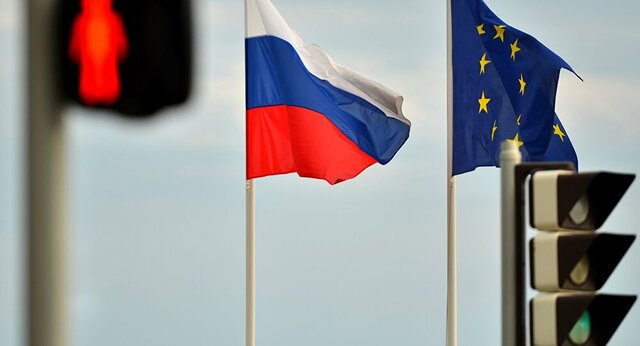EU Foreign Policy Chief Joseph Borrell has backed opposition of Canada and Britain with Russia’s renewed membership in G7. Borrell said the European Union does not believe in Russia’s return to the Group of Seven, and that the group’s structure is based on shared values, interests and commitments.
An analysis of the reasons for the European countries’ opposition to Russia’s accession to Group 7 should be examined in the context of their differences. Russia was a member of the so-called G8 until 2014, but was rejected by its Western partners after holding a referendum to annex the Crimean Peninsula.
Of course, if we go back a little bit more, some of these differences relate to the post-World War II period, the Cold War atmosphere; But after the Cold War and in the 1990s, given Russia’s relative weakness, we saw an increase in cooperation in some areas. In fact, Russia did not oppose the expansion of the European Union and NATO because of the economic and military weaknesses it experienced after the Cold War and the collapse of the Soviet Union.
In the early third millennium, Russia was able to regain its power following rising energy prices and the subsequent reconstruction of Russia, as well as the entry of Vladimir Putin into the scene of politics. Friction between Moscow and Brussels began at that time. The war in Georgia in 2008 is a prime example of this, and the West has worked hard to bring Georgia and Ukraine into NATO and the European Union in the long run.
In the wake of the Ukraine crisis, Europe also imposed sanctions on Russia, arguing that Moscow had violated its obligations under the Helsinki Final Act. The document, signed in 1975, pledged the East and the West, namely the United States and Europe, to respect international norms and territorial integrity of countries. Europeans believe Russia’s actions in the Ukraine crisis violate those commitments and they have aggressively invaded a European land. The crisis remains unresolved.
The second issue is the claim that Europeans are making about Russian interference in European countries, which can be seen in the form of hybrid warfare. Hybrid warfare is a set of military and non-military actions that seek to damage infrastructure or change the public opinion of European countries and align with Russia. Cyber-attacks, propaganda, or the dissemination of false information are among the measures Russia has taken in recent years, according to European countries, to influence European developments. In the case of Brexit, some believe that Moscow, through its media networks such as Russia Today or the pro-Russian think tanks, tried to influence British public opinion when UK was leaving the European Union.
Another issue is Moscow’s relationship with the far-right parties in Europe; parties that oppose European integration and have very close ties to Moscow. Among them is the French National Front, led by Marine Le Pen, who has praised Russia many times. Meanwhile, the Hungarian prime minister has close personal ties to Vladimir Putin.
Kremlin’s relationship with far-right parties in Europe could ultimately have a negative impact on European integration, and so this is one of the reasons for the differences between the European Union and Russia.
A very strategic point in Moscow-Brussels relations is the issue of energy; as a significant portion of the EU’s energy resources are supplied by Russia. Moscow has repeatedly used energy leverage to put pressure on the EU. Given these issues, it can be said that over the last one or two decades, various issues, such as the Ukraine crisis or the expansion of NATO, have caused tensions in bilateral relations.
Regarding the future of Russian-European relations, it is unlikely that we will see any particular change in the short term; but given Britain’s withdrawal from the European Union and its strong support for tougher European sanctions against Russia, the scenario is that the differences between Russia and the European Union may subside to some extent after a while.
Many companies from France and Germany have invested in and are present in Russia, so the two countries are not very opposed to improving relations with Moscow but other European countries, especially Eastern Europe, are reluctant to normalize relations with Russia. For this reason, in the short term, given the EU’s internal crises, it cannot be hoped that Brussels-Moscow relations will improve quickly, but in the medium and long terms, the EU due to its dependence on Russian energy and the fact that part of Russia is on the European continent, is forced to settle differences with Moscow and to reduce tensions in the relations with Russia.
in the short term, given the EU’s internal crises, it cannot be hoped that Brussels-Moscow relations will improve quickly, but in the medium and long term, this union is due to Russia’s dependence on energy and the fact that part of Russia is on the European continent. However, it is necessary to resolve its differences with this country and to reduce the relations with less tension.










0 Comments